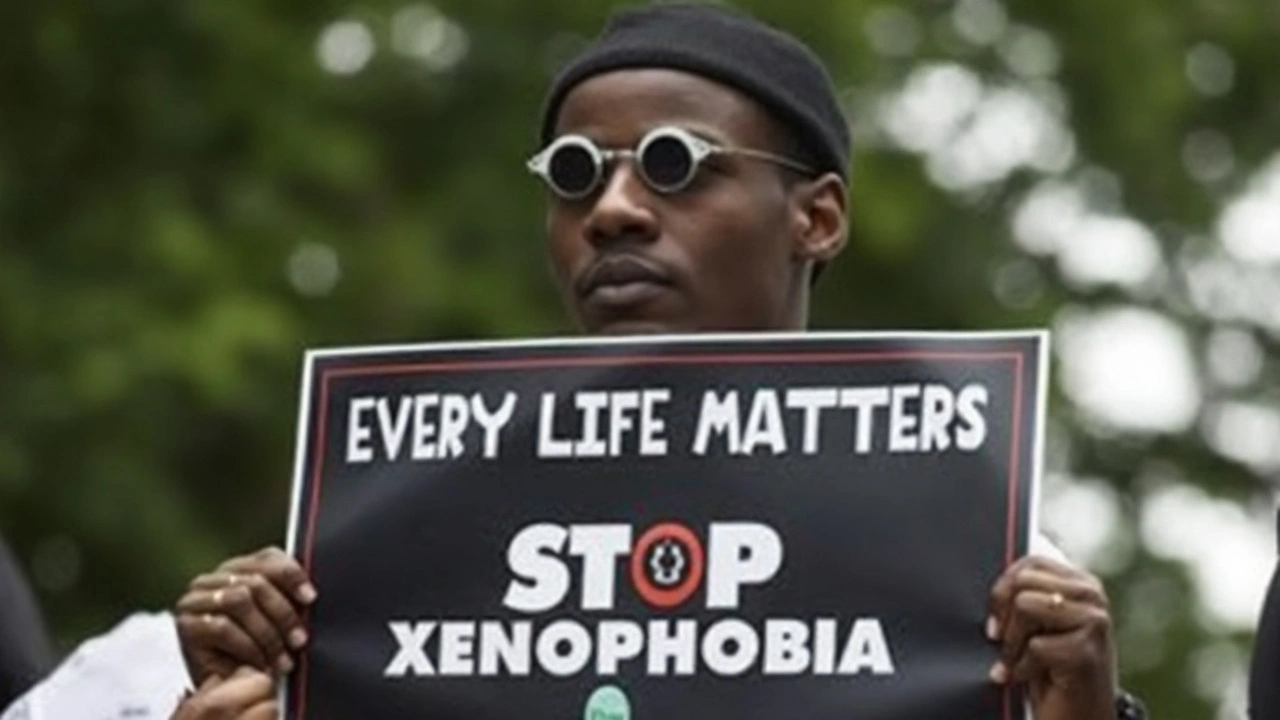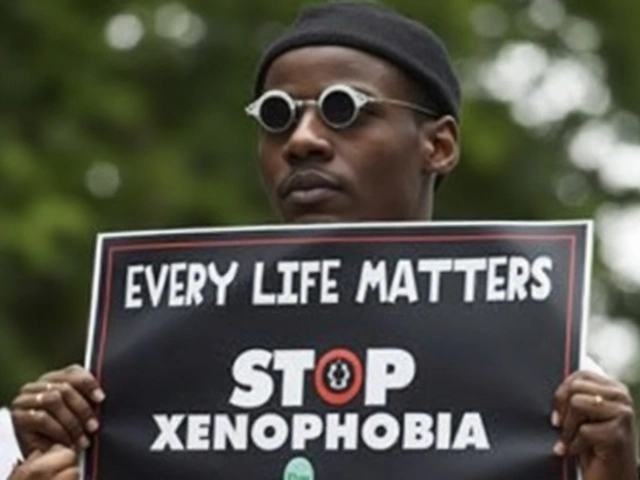The Real Roots of South Africa’s Xenophobic Outburst
Walk into any taxi rank or township market in South Africa, and you’ll hear it—the murmurs, the frustration, the blaming of foreigners. But peel away the noise, and you’ll see something deeper: a country grappling with broken promises, growing poverty, and a government that seems to be running on fumes.
Sheldon Magardie, a legal advocate from the Legal Resources Centre, isn’t mincing words. He calls the surge in xenophobia a warning sign that the government isn’t getting its house in order. Sure, people are angry, but not because they're naturally hostile to outsiders. That rage, he says, is misdirected—it’s the system that’s failing, not groups of migrants trying to survive.
It goes beyond anecdotes and isolated incidents. Rights groups have watched for years as authorities fumble critical issues: spreading inequality, broken hospitals, overcrowded schools, and police that often can’t—or won’t—protect those who need it. When jobs dry up and public services collapse, frustration looks for a face. Politicians, in turn, find it easier to point to ‘others’—the immigrants—rather than overhaul failing departments or root out corruption within their own ranks.

Policy Blunders and the Shifting of Blame
This blame game runs deep. According to organizations working on the ground, new migration policies haven’t helped. Instead of fixing joblessness or violent crime, officials have piled burden after burden onto migrants. Laws that treat migration like a criminal act only add fuel to the fire.
- Unemployment figures in the country have stubbornly hovered near record highs, especially among youth.
- Service delivery protests often end up targeting foreign-owned businesses instead of those in power.
- Whenever political tensions rise, so does tough talk on the border, with migrants described as the cause—not the casualty—of South Africa’s woes.
The xenophobia seen on the streets isn’t born from nowhere. It thrives in the cracks left by underfunded schools, disappearing government grants, and police ignoring crimes because the paperwork’s too much. The result: whole communities stuck with too little, fighting over crumbs, while leaders dodge accountability and play to public fears for votes or distraction.
Human rights organizations warn that until leaders stop scapegoating and start remaking the basics—jobs, safety, clinics, housing—the anger will only fester. South Africa’s challenge isn’t just about who belongs; it’s about whether the state delivers for anyone, no matter where they’re from.










Santosh Sharma
July 7, 2025 AT 19:40The surge in xenophobic incidents across South Africa can be traced to structural deficits in public service delivery. Unemployment among youths has lingered above 30 percent for several years, creating a pool of disgruntled individuals seeking scapegoats. Simultaneously, the health sector suffers from chronic under‑funding, which erodes public confidence in the state's ability to protect its citizens. When clinics cannot provide basic treatments, frustration is inevitably redirected toward visible outsiders who are perceived as competitors for scarce resources. Education outcomes have also deteriorated, with overcrowded classrooms and insufficient teaching materials contributing to a sense of hopelessness. This sense of hopelessness is fertile ground for political actors who weaponize immigration narratives to galvanize support. Recent policy drafts have introduced punitive visa regulations without addressing the root causes of economic marginalization. Such legislation reinforces the perception that migrants are criminals rather than contributors to the economy. Evidence from the Labour Force Survey indicates that foreign‑born workers fill gaps in sectors such as agriculture and construction, yet they are repeatedly blamed for job scarcity. Moreover, local law enforcement agencies often lack the capacity to investigate crimes impartially, leading to selective enforcement. This selective enforcement compounds community grievances and emboldens vigilante actions. Civil society groups have documented over 300 hate‑crime reports in the past year alone, a figure that is likely an undercount. The pattern mirrors earlier crises in the 2000s, where service delivery protests spiraled into targeted attacks on foreign‑owned businesses. What distinguishes the current wave is the rapid amplification through social media, where rumors mutate into mobilizing slogans within hours. To arrest this trajectory, the government must prioritize inclusive job creation programs, transparent procurement processes, and equitable health funding. Only by restoring the credibility of state institutions can the narrative shift from blaming strangers to confronting systemic failure.
yatharth chandrakar
July 7, 2025 AT 19:50Recent International Labour Organization reports confirm that the informal sector, which employs a large proportion of migrants, contributes roughly 7 % to South Africa's GDP. By integrating these workers into formal employment schemes, the state can reduce both unemployment and the perception of competition. Targeted skills‑development initiatives, especially in renewable‑energy projects, have shown measurable reductions in local tensions in pilot municipalities. Moreover, transparent communication from municipal authorities about the rationale behind migration permits helps dispel misinformation. Implementing these evidence‑based measures could mitigate the root drivers of xenophobia without resorting to punitive legislation.
Vrushali Prabhu
July 7, 2025 AT 20:00This is sad reality for everyone involved.
parlan caem
July 7, 2025 AT 20:05The government’s half‑baked policies merely plaster over a festering wound that it created itself. By dumping blame on migrants, officials dodge accountability for chronic corruption and misallocation of funds. Citizens deserve a leadership that tackles the budget leaks before pointing fingers at vulnerable outsiders.
Mayur Karanjkar
July 7, 2025 AT 20:10Structural reform must precede any socio‑political narrative to re‑engineer social cohesion. A paradigm shift toward systemic resilience is indispensable.